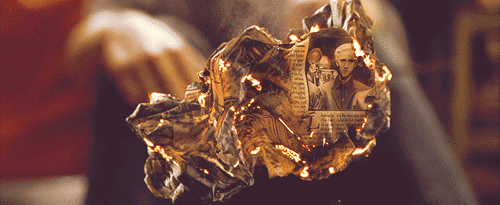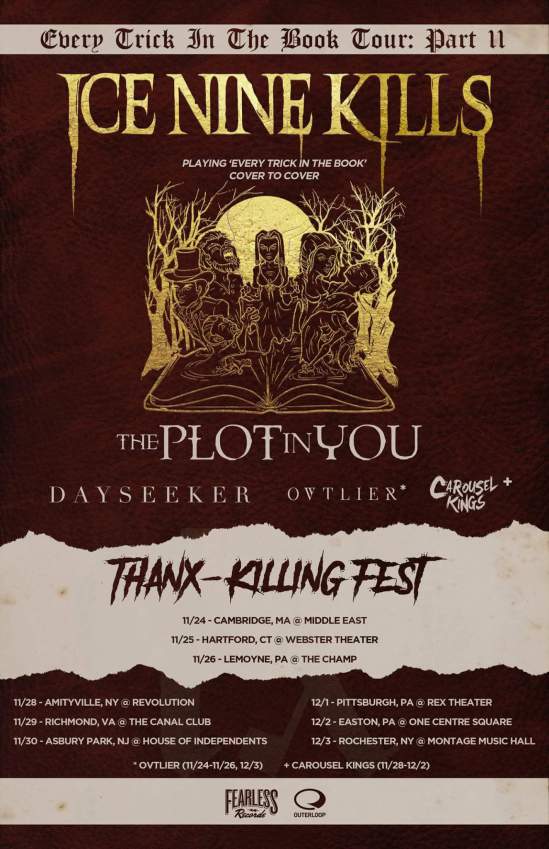Twenty years ago, Harry Potter and the Philosopher’s Stone was published. Aimed at young children and taking place in a magical universe where children fought evil sorcerers, ate jumping chocolate frogs and tackled three-headed dogs, the book reflected happy escapism with no real hidden message in its 223 pages. But over the years these millennial witches and wizards grew up, and by the time the fifth book, Harry Potter and the Order of the Phoenix, had been published in 2003, the series had grown with its original readership – the novels’ subjects now sixteen years old, posed and ready to take on the magical establishment who refused to acknowledge the return of the evil Lord Voldemort and were then complicit in his treachery. Through careful media manipulation via the Daily Prophet, the masses were brainwashed by the disillusioned Cornelius Fudge. Even Seamus Finnigan’s mam believed it.
Sure, J.K. Rowling meant to satirise the magical governments she created – that doesn’t mean the books were explicitly political. Or are they? It can be argued that an overarching narrative of fascism makes the books indisputably political, even within its fictional context. Satirised stereotypes are everywhere; Hogwarts can act as a breeding ground for MP’s: Gryffindor’s are the centrist liberals, the social justice warriors; Ravenclaw the nerdy Marxist academics. Slytherins like to use the phrases “snowflake,” their daddies buying them the new Nimbus 2001 whilst moaning about the tax on their shining new cauldrons. Hufflepuff is Nick Clegg; means well, nice enough, but irrelevant in the grand scheme of things.

Then, we come to the magical media systems in Harry Potter. The Daily Prophet is The Times; The Quibbler is perhaps more The Morning Star. “The Prophet? You deserved to be lied to if you’re still reading that muck. You want the facts? Try The Quibbler,” Ted Tonks scoffs in Deathly Hallows. “Xeno is printing all the stuff the Prophet’s ignoring, […] how long they’ll let you get away with it, mind, I don’t know.” And so, the debate on fake news begins – clearly not a new concept, but articulated plainly. The Quibbler epitomizes the importance of alternative press, no matter how often it’s branded a “lunatic rag” by the magical elite. There’s even a Facebook page (with a modest 21 likes) entitled ‘Rebekah Brooks is a real-life Rita Skeeter.’ Whilst Skeeter, the animagus, turned into a beetle to spy on news subjects and gain the inside scoop, in the muggle world Brooks turned to phone hacking.
What threats, then, did the Ministry of Magic face that are even vaguely comparable to our current situation? Not many, is the answer – but still, links can be made that certainly aren’t tenuous. Minster for Magic Cornelius Fudge refused to accept the threat of Voldemort, wracked with fear of his powers and government being undermined, and labelled Potter a liar in collaboration with the Daily Prophet. In a similar vein, Theresa May’s panic in the days leading up to the 2017 General Election led to her friends over at The Daily Mail coming up with the headline “Apologists for terror” with pictures of Corbyn, McDonnel and Abbott emblazoned in the centre. With May promising to halt certain inquiries into the Mail’s previous actions, I wonder if the Prophet had similar loyalties to Fudge, the falteringly clueless Boris Johnson of the magical world. Or do major newspapers indeed need to be utterly loyal to those currently in power? Conservative MP Andrea Leadsom called on the media, such as the BBC, to be more ‘patriotic’ about the current government. Surely it is the job on the media to keenly question and critique the governmental elite, to worm out corruption? Leadsom seemingly wants a system much more like the Fudge–Prophet alliance.

When Fudge’s replacement, Rufus Scrimgeour, made his “dark times” speech about how the Ministry of Magic were to remain tough in the face of adversity and dark forces, it is only too uncanny compared side by side by Theresa May shakily delivering a speech outside 10 Downing Street following recent terrorist atrocities. Under Pius Thicknesse and the death eater coup, the Ministry truly surrendered to corruption. Are we too only one step away, considering the frightening new concession to the DUP? Thicknesse’s new slogan, ‘Magic is Might,’ is as empty and platitudinous as ‘Strong and Stable’ – Voldemort’s atrocities were as scary to witches and wizards as the DUP’s policies are to women, LGBT+ people and the environment.
“They won’t print a story that shows Harry in a good light. Nobody wants to read it,” Skeeter admits in Order of the Phoenix. “It’s against the public mood. This last Azkaban breakout has got people quite worried enough. People just don’t want to believe You-Know-Who’s back.” And so, the cycle of corruption continues.
Share this:





